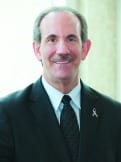The Verdict | February 2014 Plastic Surgery Practice
PSP Theft Prevention Checklist
Are you doing everything you can to prevent fraud and embezzlement in your practice?
By Jay A. Shorr, BA, MBM-C, MAACS-AH, CAC I, II, III 
Nearly 83% of doctor’s office employees have worked at a medical practice that was affected by theft, graft, or embezzlement, according to a report from the Medical Group Management Association. Most of the time, practices—even yours—are easy marks because doctors just aren’t looking for crime.
There are ways in which each department and/or employee may be stealing, embezzling, or just scraping off the top in your practice. Here are seven simple, but important, questions to ask of each department and employee to make sure your assets and resources are protected. Be prepared: The answers may surprise you.
1. Are there swings in either dollars or percentages in total or from any specific vendors? Keep an eye on large variances, as this could mean someone is taking advantage of you.
2. Do you sign off on all initial vendor invoices? Doing so may ward off situations where the managers set up a payment plan … for themselves.
3. Do you receive packing slips and invoices for all goods? You should. Keep an eye out for invoices without totals. This can help identify any shady side deals that employees may make with your vendors, including the authorization of higher-cost capital equipment, office supplies, and equipment, or even construction and property contractors.
4. Do you monitor your payroll for possible pay increases, paid time off—including sick leave and vacation time, and excessive hours that you never authorized? Many payroll services offer spreadsheets for a fee that can track this as part of your payroll program.
5. Do you have a security monitor? Where allowed, these devices are a wonderful visual aid for theft recognition and reduction. Staffing at all levels are generally more honest when they know they might be monitored.
6. Do you have a “no loan” policy from employee to employee? If a payroll advance is required, an authorized notice should be signed and properly deducted from a future payroll period. This eliminates employee in-fighting over past loans and overdue debts.
7. Do you lead by example? Many doctors will admit that they took supplies, such as sutures and bandages, from a hospital after a surgical case to be used in their private office. As insignificant as this may be in the physician’s eyes, the hospital still had to pay for the supplies. If your staff sees this type of activity occurring, it tells them theft is acceptable.
Jay A. Shorr, BA, MBM-C, MAACS-AH, CAC I, II, III, is the founder and managing partner of The Best Medical Business Solutions, based in Fort Lauderdale and Orlando, Fla. He can be reached via [email protected].
Original citation for this article: Shorr, J. PSP prevention checklist: are you doing everything you can to prevent fraud and embezzlement in your practice?, Plastic Surgery Practice. 2014; January: 10






